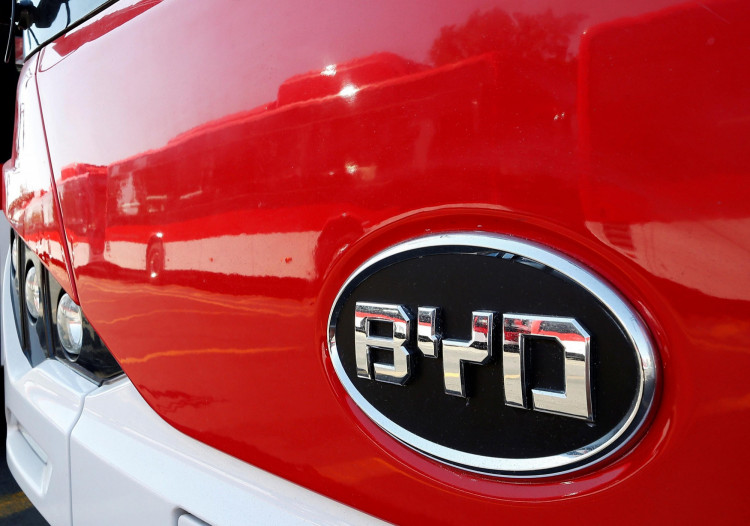Mexico, a key export destination for Chinese automobiles, is witnessing an expansion of Chinese car manufacturers who are planning to set up factories in the region. This move follows the successful mass production of some Chinese industrial chain companies in Mexico.
Media reports indicate that BYD, SAIC's MG, and Chery have been in talks with the Mexican government this year to find suitable locations for their factories. Additionally, another Chinese company plans to build a $12 billion battery factory in Mexico.
An engineer from BYD told Interface News that the company is internally recruiting personnel for overseas positions, some of whom he suspects will be assigned to Mexico. "Judging from the current large-scale selection, BYD will further strengthen its presence overseas in 2024." Despite challenges in accessing the passenger car market, the company remains highly focused on future developments in the U.S. market.
Mexico, a stronghold in the North American automotive market, is the world's seventh-largest car producer and fifth-largest auto parts manufacturer. It boasts rich metal mineral and talent resources. Under the USMCA agreement, companies manufacturing in Mexico can export to the U.S. tariff-free if a certain percentage of their components are sourced from North America, making the country an attractive investment destination for global automakers.
However, Chinese car manufacturers face challenges in entering the U.S. market, especially since the introduction of the U.S. Inflation Reduction Act, which poses new challenges for the electric vehicle and components industry. In mid-June, BYD's Executive Vice President Li Ke stated, "The U.S. market is not currently within our consideration." Li expressed more interest in discussing growth plans in markets like Mexico, Chile, and Thailand than in the U.S.
BYD officially entered the Mexican passenger car market in March this year, subsequently launching models like Dolphin and Seal. In September, Li mentioned considering building a new factory in Mexico, depending on market demand. "In principle, the cars we offer in Mexico will come from China, but if there's significant demand in the future, we'll consider manufacturing in Mexico."
Despite being a strong economy in Latin America, Mexico's poor public transportation conditions have led to growing demand for private vehicles. In recent years, several Chinese car manufacturers, including BYD, have seized this opportunity to expand overseas, gradually gaining influence in the local Mexican market.
Guillermo Rossles, head of the Mexican Automobile Dealers Association (AMDA), noted that cars from China accounted for 19.4% of Mexico's car imports in the first eight months of this year, three times the rate in the same period in 2018.
Data from the China Association of Automobile Manufacturers, compiled by the General Administration of Customs, shows that from January to October this year, China exported 4.239 million vehicles, with Mexico being the second-largest export destination after Russia, totaling 334,000 vehicles.
In March, SAIC Group launched a direct shipping route from Ningde to Mexico, with its largest car carrier, "Anji Phoenix," transporting the first batch of a thousand MG brand new cars to the distant destination. The following month, SAIC MG considered building a new factory in Mexico and planned to enter the U.S. market.
Chery Automobile announced in October its strategy to operate in the U.S. but did not disclose specific details or implementation timelines. Chery also plans to build a factory in Mexico with an annual capacity of 400,000 vehicles, mainly targeting markets in other countries.
Overseas markets have been crucial for Chery's sales growth, with delivery volumes increasing annually. Data from the China Association of Automobile Manufacturers shows that in the first 11 months of this year, Chery exported 837,000 vehicles, accounting for over half of its total sales and ranking second in export sales after SAIC Group.
Previously, Tesla's plans to build a factory in Mexico attracted several Chinese suppliers, including Top Group, Xusheng Group, Bertley, and Yinlun Shares, to establish operations there. However, delays in the production of Tesla's super factory in Mexico have put pressure on these suppliers. LatePost reported that Tesla underestimated the challenges of building a factory in Mexico.
Companies venturing to build factories in Mexico not only face significant investment expenditures but also need to navigate different infrastructure and cultural environments. A marketing professional from a multinational automotive supply chain company told Interface News that the skill level of manufacturing workers in Mexico differs significantly from that in China, as does the work pace. To adapt to local customs, the company employs more locals in management positions in Mexico.






